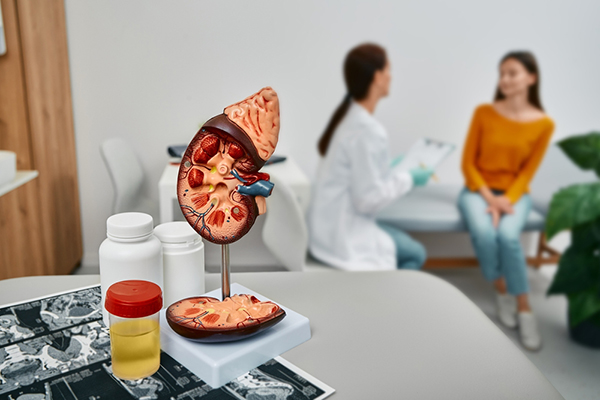Female urological conditions can include, urinary tract infection, over-active bladder syndrome, neurogenic bladder syndrome, pyelonephritis, urinary incontinence, kidney stones, bladder cancer and kidney cancer. This is just a small example of some of the urological diseases that can affect women, it is also worth noting that these conditions are not just specific to women and can also affect men.
Female Urology Case study
Barbara is a 70-year-old lady who has presented in the nurse-led flexible cystoscopy clinic.
She has persistent microscopic haematuria. Her GP has referred her on the two week-wait pathway as the haematuria has persisted despite being treating with multiple courses of oral antibiotics over the last 3 months.
When reviewing Barbara’s records, you can see that she has had three proven urinary tract infections (UTI), growing E. coli on urine cultures each time.
When taking Barbara’s history, she reports vaginal itching, occasional dysuria, malodorous urine and suprapubic discomfort. Antibiotics seem to resolve her symptoms, buy then the symptoms return typically 7 – 10 days after finishing the antibiotic course. Some of the investigations you may consider may include a urinary dipstick and sending off the urine for MC&S. If Barbara is asymptomatic today and her urine dipstick is negative for infection you may proceed to flexible cystoscopy to rule out any sinister pathology. What other investigations may you consider? You may wish to perform a post-void bladder scan.
You may also wish to discuss with Barbara some preventative measures for reducing UTI’s. This may include ensuring adequate daily fluid intake, personal hygiene advice, topical oestrogen, D mannose. Recurrent UTI’s are very common in post-menopausal women, and this is quite a typical presentation. The urology team and the GP would usually work together along with the patient to discuss different therapies which may help, along with things that Barbara can do herself to reduce the infections – patient education is very important, and the urology nurse plays a pivotal role in this.
